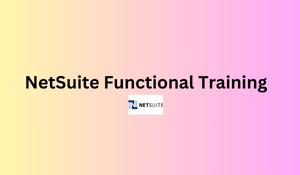What is NetSuite?
NetSuite is a cloud-based, integrated business management suite that encompasses ERP, CRM and other business applications for comprehensive and efficient operations.
Explain NetSuite and its key features.
NetSuite is a cloud-based ERP system. Key features have financial management, CRM, e-commerce, HR, inventory and customizable Suite Cloud platform, offers a overarching complete solution for businesses.
What type of database is NetSuite?
NetSuite uses Oracle Database as its fundamental database management system. Oracle Database is a robust, scalable, and widely used relational database technology. It provides a secure and efficient foundation for storing, retrieving, and managing data, supporting NetSuite’s comprehensive suite of business management applications.
What is NetSuite ERP?
NetSuite ERP is a cloud-based suite of business management applications a certain helps organizations streamline and integrate various core processes, include financial management, order management, inventory management, human resources, and more. It provides a unified platform facing managing key business functions, allowing companies to gain real-time visibility into their operations and make data-driven decisions.
Netsuite CRM Vs ERP
NetSuite CRM focuses on sales and customer interactions, while NetSuite ERP (Enterprise Resource Planning) integrates core business processes like finance, HR, and inventory management. Together, they provide a comprehensive business management solution.
What technology does NetSuite use?
NetSuite, a cloud-based business management suite, utilizes a variety of technologies to deliver its functionality.
• Oracle Database:
NetSuite is owned by Oracle Corporation, and it often leverages Oracle Database as its underlying database management system.
• Java:
NetSuite’s application is built using Java, a versatile and widely-used programming language.
• JavaScript:
NetSuite uses JavaScript for both server-side and client-side scripting. SuiteScript, NetSuite’s scripting language, is based on JavaScript and is used for customizing and extending the functionality of NetSuite.
• HTML and CSS:
Like many web-based applications, NetSuite relies on HTML (Hypertext Markup Language) for structuring content and CSS (Cascading Style Sheets) for styling.
• REST and SOAP Web Services:
NetSuite provides APIs (Application Programming Interfaces) based on both REST (Representational State Transfer) and SOAP (Simple Object Access Protocol) to allow integration with other systems and custom development.
• SuiteTalk:
SuiteTalk is NetSuite’s web services API that uses SOAP for communication. It enables developers to integrate NetSuite with external applications.
• SuiteScript:
SuiteScript is NetSuite’s JavaScript-based scripting language. It allows users to customize and extend NetSuite’s functionality, automating business processes.
• NetSuite SuiteCloud Platform:
NetSuite offers a cloud development platform called SuiteCloud, which includes tools and services for customizing, extending, and integrating NetSuite applications.
• NetSuite SuiteAnalytics:
SuiteAnalytics is NetSuite’s suite of tools for business intelligence and reporting. It includes features for data analysis and visualization.
• Amazon Web Services (AWS):
NetSuite is hosted on the cloud, and it has been known to use Amazon Web Services (AWS) as its cloud infrastructure provider.
What Are The Event Types In A User Event Script?
In NetSuite’s SuiteScript, particularly during working with User Event Scripts, different event types correspond to specific points in the lifecycle of a record (such as a customer, sales order, or invoice). User Event Scripts are scripts that are triggered by user actions or events that occur in the system.
What is the role of a NetSuite Functional Consultant?
A NetSuite Functional Consultant plays a crucial role in the successful implementation, customization, and optimization of the NetSuite ERP (Enterprise Resource Planning) system for businesses.
Can you explain the Order to Cash (O2C) process in NetSuite?
By using NetSuite’s unified platform, organizations can enhance clarity, drive into manual effort, and upgrade overall efficiency in managing the Order to Cash process. Additionally, the system allows for customization to meet the unique requirements of different industries and business models.
How do you set up and manage Financial Statements in NetSuite?
To set up and manage Financial Statements in NetSuite, define a Chart of Accounts, create financial statement layouts, and use SuiteAnalytics for custom reports. Regularly review and update statements for accurate financial insights. Customize forms, records, and workflows to align with business needs.
Explain the difference between SuiteScript 1.0 and SuiteScript 2.0.
SuiteScript 1.0 and SuiteScript 2.0 are scripting languages in NetSuite. SuiteScript 1.0 is prototype-based and older, while SuiteScript 2.0 adopts ECMAScript 2015 with modern syntax. SuiteScript 2.0 offers enhanced error handling, modular code structure, and supports advanced features, providing a more efficient and scalable customization framework for developers.
What is Saved Search in NetSuite, and how is it used?
In NetSuite, a Saved Search is a customizable query tool qualify users to define, save, and retrieve specific data sets based on criteria. Used for reporting, analysis, and automation, Saved Searches facilitate creating custom reports, dashboards, and automating processes, offering a flexible and powerful way to interact with NetSuite data.
How do you customize forms and records in NetSuite?
In NetSuite, customize forms and records guiding SuiteBuilder. Tailor the layout, fields, and behavior of forms to align with business needs. Create custom fields, set permissions, and define workflows for efficient data management. SuiteFlow allows for visual workflow customization, automating processes without scripting.
Can you describe the Record Types in NetSuite?
Record Types in NetSuite refer to distinct entities representing different business objects, such as customers, transactions, and items. Each Record Type has specific fields and behaviors, supporting diverse data management needs.
What is SuiteFlow, and how can it be utilized in NetSuite?
SuiteFlow is NetSuite’s workflow automation tool, enabling users to visually design and automate business processes without coding. It streamlines tasks and enhances efficiency.
How do you handle multi-currency transactions in NetSuite?
Handle multi-currency transactions by setting up multiple currencies, defining exchange rates, and assigning currency preferences. Transactions are automatically converted, and financial reports reflect accurate currency values.
How can you integrate NetSuite with other third-party applications?
Integrate NetSuite with third-party applications using SuiteTalk (web services), SuiteScript (custom scripts), or SuiteFlow (workflows). APIs facilitate data exchange, ensuring seamless communication and automation across systems.
What is SuiteTalk, and when would you use it?
SuiteTalk is NetSuite’s web services API for join and automating processes. Use it to attach NetSuite with external systems and automate business workflows.
How do you troubleshoot issues in NetSuite configurations?
Troubleshoot NetSuite configurations by reviewing system logs, examining error messages, validating permissions, and using SuiteScript debugger. Collaborate with NetSuite support and community resources for resolution.
Discuss the role of SuiteAnalytics in NetSuite.
SuiteAnalytics in NetSuite provides robust analytics and reporting tools. It enables users to create, customize, and analyze reports, gaining valuable insights within business performance assisting informed decision-making.











